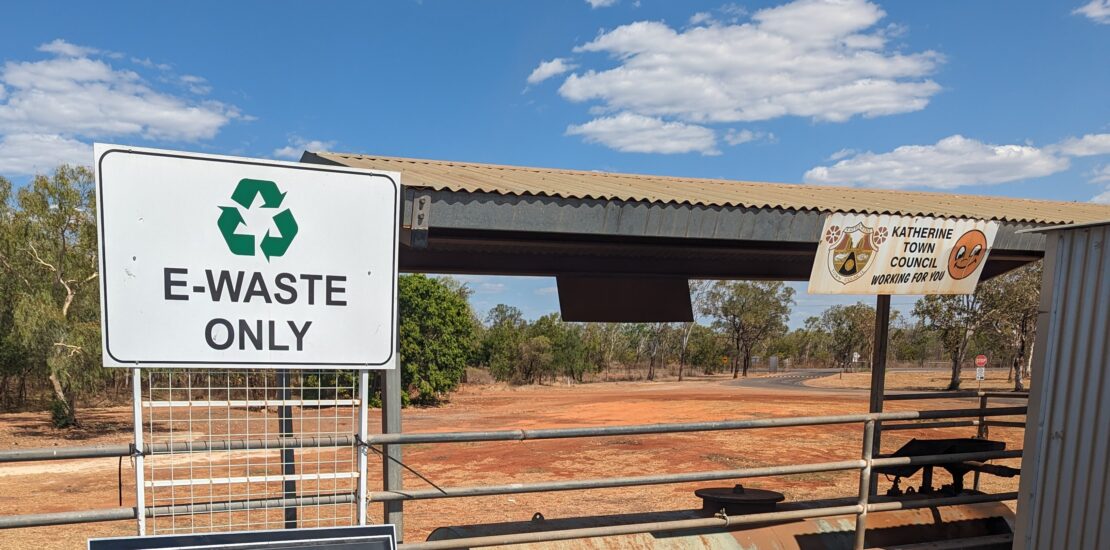Improving Services to Regional and Remote Communities under the NTCRS
- 2024-06-10
- Posted by: Eloise Lane
- Category: ANZRP

Improving services to regional and remote communities has been an aim under the National Television and Computer Recycling Scheme (NTCRS) – but is it a reality?
NTCRS Aims
When the National Television and Computer Recycling Scheme (NTCRS) was established over a decade ago it was designed to capture and divert e-waste from landfill and recover the embedded materials and resources in a sound manner to ensure retention in our economy. It was also intended to “provide access for households and small businesses Australia wide” as part of the industry wide recycling service.
Reasonable Access
Commonly referred to as “reasonable access”, the aim of this objectives is to ensure that 98% of Australians can readily access a scheme-funded and free disposal service. Typically, these services are provided to the public through local government waste transfer stations, via retailers of electric and electronic appliances or through one-off events. The Regulations ensure that these services are provided across metropolitan, regional, and remote areas and that they must be provided by each of the Co-regulatory Arrangements* (Co-regs) that operate under the scheme. The regulations open the door to competing Co-regs partnering together to provide the services to the public.
Reasonable Access Challenges
At the outset of the Scheme there were many unknowns. This included not knowing how many Co-regs would set up and how these arrangements would interact with each other – including the extent to which they would co-operate to fulfill their reasonable access commitments. Whilst there has been some level of collaboration, it has largely been uncommon. This has been caused both by the lack of longevity of some Co-regulatory arrangements as well as competitive pressures, which fuel solutions that are least cost for individual arrangements.
Reasonable Access outcomes
The net outcome of this is high levels of service duplication in many regional and remote locations, as they are serviced by each of the operating Co-regs. This is, of no benefit to these communities, whose needs can be met by one reasonable access service in their area. Conversely, communities not covered by the “reasonable access” metric are often not serviced at all, simply because to do so, would add costs for a Co-Reg. Additionally, cost pressures may also lead to some Co-regs favouring to collect e-waste volumes in some States of Australia over others, given that logistics and recycling costs are higher in certain States. By default, this serves to reward arrangements to “under-service” some States and creates an uneven playing field.
ANZRP is proud that over the years we have consistently fulfilled the Reasonable Access obligation and in fact have gone above and beyond. Our partnership with East Arnhem Regional Council in remote Northern Territory stands testimony to this. Each year we work with the council to provide services to some distant locations, including some very remote island communities. This partnership has served divert over 12,000 kilograms of e-waste since 2014.
Whilst ANZRP has gone above and beyond, we have not been able to provide a collection service to all remote communities that have contacted us. The pressure to remain cost-competitive for our member fees has prevented us from servicing a larger number of communities.
The future – How do we go forward to deliver a fair and reasonable access service?
In 2023 the Federal Government announced its intention to expand the NTCRS to include small electrical and electronic equipment, much of which currently goes to landfill. The Government is now consulting broadly on this plan. In expanding the scheme, the government has also signalled a desire to revisit the Reasonable Access provisions and seek advice on how Australians living in all parts of the country can be provided equitable access to e-stewardship services. This includes examining how best to set scheme targets and obligations that enhance access to remote and regional Australia.
ANZRP whole heartedly supports this desire. We suggest that the current competitive model in high volume (metropolitan) areas, where Reasonable access is readily provided by competing co-regs, is retained to drive value for money outcomes. However, the model needs to be enhanced to ensure that all councils and communities in Australia are engaged and able to provide services for their constituents that are on parr with that provided to metropolitan councils. It will be important that costs for such services, in rural and regional areas, are shared by industry on a basis that is fair and equitable. This will ensure no co-regs are disadvantaged and will help expand the reach of the scheme to a wider area, thereby diverting greater tonnes of e-waste than is presently the case.
There is no question that the introduction of the NTCRS has significantly expanded the network of free recycling services for the public, right across Australia. Without it, we would not have seen collection points set up in such far flung locations as Thursday Island, Kununurra, Nhulunbuy or even western Tasmania. This is a great step forward from where we were. None the less, many lessons have been learnt over the past decade and the opportunity presents itself to enhance the framework we have and deliver and even better scheme, one that delivers superior outcomes and is fair and equitable.
* Co-regulatory Arrangements are the organisations, approved by the Federal Government, who meet the objectives of the Scheme and act on behalf of the importers of television and computer brands.